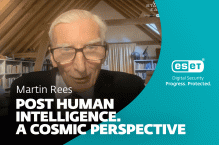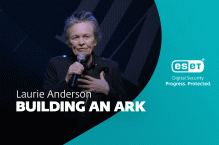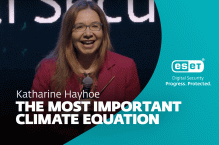In his signature style, computer scientist Bernhard Schölkopf combines history, science, and philosophy to explore what it really means for machines – and, indeed, perhaps even humans – to be intelligent. Mr. Schölkopf, who is one the world's leading figures in machine learning and causal inference, starts by taking the audiences back into the 1950s. This was an era when computer science was just finding its feet, but it was nonetheless pivotal for the future of AI. He highlights the work of pioneers such as Frank Rosenblatt, who introduced the Perceptron, once described as the first machine to "think like the human brain".
Fast-forwarding to today, Mr. Schölkopf reflects on how far we've come. ML has enabled us to solve problems that once seemed out of reach, such as coordinating visual and motor tasks, all while opening up new possibilities in fields like astronomy. But he also addresses what is sometimes the elephant in the room: AI’s limitations. He explains the importance of the so-called IID assumption (independent and identically distributed data points), which is fundamental to how machine learning models work. When real-world data doesn’t play by these rules, an AI system can stumble badly and produce glaring errors.
Mr. Schölkopf then turns to the "creative" side of AI and the ability of generative AI to produce music from text or to create stunning images through diffusion models. While undeniably impressive, are these tools actually intelligent? Today’s AI systems are indeed masters of pattern recognition, but do they understand causality and how interventions change outcomes?
Finally, Mr. Schölkopf flips the script with a simple but profound question: "Are we intelligent?" While we’re busy questioning machines, maybe we should take a closer look at ourselves too. It's a fitting end to a talk that isn’t just about machines, but also about humanity’s place in a world increasingly shaped by AI.
ESET’s commitment to promoting scientific innovation and progress is seen in its ongoing efforts to foster a deep appreciation for science, celebrate the power of groundbreaking research, and connect with leading thinkers in technology and science. ESET recently partnered with Starmus, the global science communication festival, and brought its 7th edition to Bratislava, Slovakia, in May 2024.The festival featured a number of thought-provoking perspectives from some of the planet’s foremost thinkers. You can now relive the experience from the comfort of your home and get a taste of how the power of technology is being harnessed to tackle some of the most pressing challenges facing the world today.







